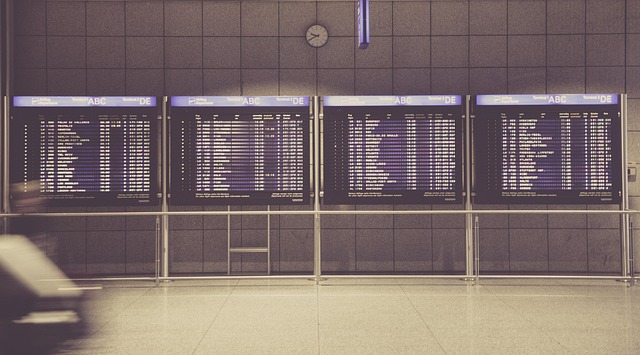The Perfect Storm: Why 2025 Is the Year of Travel Alerts
Just consider that you make arrangements to visit your dream place or on a very important business trip, and you are mid-way through your booking that the flight is canceled. All over the globe, increasing global war is causing the skies to be a hot spot with airlines scrambling to re-route frantically and passengers left high and dry. In June 2025, there are now more than 30 percent of all international air routes closed up globally after the end of World War II. So, let us break things down in a more detailed way.
🔥 Active War Zones Reshaping Global Aviation
1. Iran-Israel: The Middle East Tinderbox
Airspace Status: CLOSED (Iran, Israel, Iraq, Jordan)
Key Impact:
- Tel Aviv’s Ben Gurion Airport shut indefinitely; Tehran’s Mehrabad Airport closed until at least June
- Emirates, Qatar Airways, and Lufthansa suspended flights to Iran, Iraq, Lebanon, and Jordan
- Delta scrapped JFK-Tel Aviv routes through August 31—a flight that recently spent 8 hours airborne only to return to New York
Travel Alert:
Israel’s Home Front Command mandates shelter access within 90 seconds due to missile threats. The UK warns against “all travel” to Israel.
💡 Pro Tip:
Flights between Europe and Asia now detour via Egypt or Saudi Arabia, adding 3+ hours to journeys
2. Russia-Ukraine: The Prolonged Airspace Freeze
Airspace Status: CLOSED (Ukraine) | HIGH-RISK (Western Russia)
Key Impact:
Ukrainian airspace remains shut since February 2022, with drone strikes now hitting Russian airports like Rostov and Moscow.
Airlines (e.g., FlyDubai) canceled 22+ flights to Russia in June alone due to reciprocal airspace bans.
Travel Advisory:
Canada urges citizens to “avoid all travel” to Russia. GPS jamming is rampant, and financial transactions are blocked.
3. India-Pakistan: The Forgotten Flashpoint
Airspace Status: PARTIALLY OPEN | AVOID PAKISTANI AIRSPACE 49
Key Impact:
Air India’s Delhi-San Francisco flights now take 17+ hours (vs. 14 pre-conflict), costing airlines $600M annually in fuel 49.
Lufthansa and Air France still avoid Pakistani airspace after May 2025 clashes, rerouting via Oman or the Arabian Sea 49.
Travel Alert:
Land borders (e.g., Attari-Wagah) remain closed. India revoked Pakistani visas; expect heightened airport security 9.
4. Israel-Yemen: The Houthi Wildcard
Airspace Status: HIGH-RISK (Southern Israel) 511
Key Impact:
Houthi missiles from Yemen forced Tel Aviv airport closures in May 2025. Flights to Eilat (ETH) face last-minute diversions 511.
Safe Airspace classifies Israel as “Level 1: No Fly” due to debris from intercepted rockets 11.
📉 Airline Fallout: By the Numbers
| Airline | Cancellations | Longest Reroute |
|---|---|---|
| Air India | 12+ daily flights | Delhi-Vancouver (+4 hours) 14 |
| Lufthansa | Flights to Tehran/Amman suspended until July 31 1 | |
| Delta | Tel Aviv routes paused through August 31 6 | |
| Eurocontrol reports 1,800+ European flights disrupted in a single day 15. |
🛡️ Traveler Survival Guide: 5 Essential Strategies
Monitor Real-Time Alerts
Use Flightradar24 for live airspace maps. Avoid zones marked red (e.g., Iraq = “Moderate Risk – No Fly”).
Bookmark Safe Airspace for conflict zone classifications.
Insure Rigorously
Opt for policies covering “war-related disruptions”. Example: Allianz’s “Cancel Anytime” upgrade.
Leverage Diplomatic Resources
Register with home-country advisories (e.g., Canada’s Registration of Citizens Abroad).
Plan Layover Havens
Cyprus (Larnaca/Paphos) is absorbing Middle East diversions—32 flights in 24 hours.
Expect the Unpredictable
Pack extra meds, power banks, and cash. As one stranded traveler tweeted: *”Ben Gurion closure left me couch-surfing in Cyprus for 72 hours

The Silver Lining: Aviation’s Adaptive Future
While current wars cripple key routes, airlines innovate:
New Corridors: Turkish airspace and Azerbaijan now handle 40% more Europe-Asia traffic 5.
Tech Fixes: Airlines test AI to reroute flights during missile threats (e.g., El Al’s “SkyGuard”) 2.
🌎 Final Advisory
As conflicts evolve, so do airspace closures. Before booking:
Check government travel advisory hubs:
Avoid non-refundable bookings near conflict zones.
Subscribe to airline war-alert SMS services.
🛫 Bottom Line: In 2025, flexibility isn’t just convenient—it’s critical. Safe skies await the prepared!

The new shelter access requirement highlights the ongoing security challenges in Israel. The UK’s travel warning reflects the seriousness of the current situation. Flight reroutes via Egypt or Saudi Arabia show how global travel is impacted by regional instability. These measures underscore the need for vigilance and preparedness. How long will these disruptions and threats persist? The new WordAiApi service is now available!
We’ve added WordAiApi—a powerful tool for generating closely related thematic queries. Thanks to it:
Virtual users will receive more relevant interests.
Your site will grow not only in bot-generated search results but in all others as well.
Try it and see the effectiveness for yourself!
Download WordAiApi: https://arkhipsoft.ru/Word
WordAiApi user chat: https://t.me/wordaiapi
Video review of WordAiApi: youtube video
A free mode is available!